
Is Die Hard a Christmas Movie? Here's the one qualification every Christmas film must meet.
People love to argue about stuff. So, for this festive season, let's determine once and for all how to determine a true Christmas movie from its lesser pretenders. Indeed, it all hinges on one simple principle...
D
12/25/20245 min read
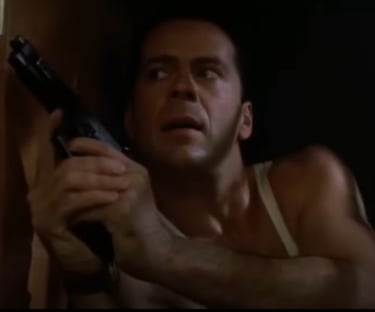

Christmas time means Christmas movies. And Christmas movies dredge up that age-old discussion of what constitutes a “Christmas Movie” in the first place. While White Christmas, Miracle on 34th Street, and A Christmas Story all easily fit the holiday definition, other films can’t be so easily distinguished. The most famous of these, of course, is Die Hard, an action film that many insist belongs on that storied list of Christmas classics. But does it? Does the Bruce Willis flick of terrorism, destruction, and body bags really represent the Christmas spirit? Does the movie bear that fundamental Christmas essence…or is it really about something else?
And that’s the puzzle I’ve long pondered: What makes a movie an intrinsically Christmas one? What qualities must a movie embody to be considered a distinctly Christmas work of art—to be counted amongst a genre both narrowly specific yet paradoxically eclectic? My epiphany came with an obvious, almost mundane revelation: A Christmas movie can’t exist outside the holiday it represents. Or, more precisely, if a film can exist independent of its Christmas pretensions—if it doesn’t need the Christmas theming to be watchable or make sense, then it isn’t a true Christmas film. A pseudo-Christmas film may exploit the season to add a certain texture or gloss, but stops short of absolutely requiring Christmas to formulate its story.
Below, I’m using four “Christmas” classics as a sliding-scale demonstration of a film’s holiday eligibility—from the first entry’s “definitely not” to the fourth’s “indelibly so.” The middle two, being a bit more “fluid,” are perhaps the bigger sources of controversy.
Die Hard (1988): Die Hard is the most infamous film on this list. Not because it’s bad—quite the contrary, it’s among the greatest action films ever made—but because it’s a bad Christmas movie.
Plenty of folks, of course, still scream the contrary. It’s set at Christmas! It has holiday music! It involves a holiday party! Even some of McClane’s one-liners are Christmas themed! But the reality is that, if one were to extract the core movie from its holiday trimmings, it could still easily exist. Would still be greatly entertaining. Would still make perfect sense as a tale depicting an outgunned cop fighting terrorists inside an office skyrise. Sure, some of the festive texture would be lost, but John McClane would rise as the wry, endearing hero all the same. In Die Hard, Christmas is just an ironic pretense, the contrarian ornamentation draped over an otherwise grit n’ dirty tale about achieving peace through bullets, not holiday cheer. By itself, Die Hard is incredible, but as a Christmas Movie, it just isn’t credible.
Gremlins (1984): This movie is tougher, maybe the hardest to categorize, for though the film could exist as a work of horror completely divorced from its Christmas proceedings…it would definitely lose an important ingredient in the process, like chomping a bucket of popcorn without the salt and butter. Indeed, while the plot of battling green, toothy critters works in just about any setting, if the Christmas backdrop was dropped, the biting irony of its dueling themes would also be lost—that splattery shlock decked with Christmas tinsel and quasi-good cheer. Yes, although not about the Christmas season, per se, Gremlins is imbued with enough of the holiday’s themes and conventions to be, perhaps, irrevocably bound. (Remember Phoebe Cate’s haunted recalling of her father’s last, tragic Christmas?) If not a holiday movie, it certainly comes close…much closer, indeed, than its Die Hard counterpart.
Home Alone (1990): Although clearly a Christmas movie, one could argue that Home Alone’s central premise of a boy battling a pair of bungling burglars is timeless to the point of not needing a particular season or holiday. Indeed, some of the movie’s later sequels skip the Christmas shenanigans altogether. But here’s the rub: these later films aren’t that good—often terrible, really—and this is due to a pronounced lack of that Christmas seasoning, that extra messaging, to fortify their otherwise insubstantial souls. Without Christmas, the franchise is little more than a cartoon about a boy bludgeoning his dim-witted antagonists Looney-Tunes style.
Truth is, Home Alone needs Christmas like a romantic comedy needs a love interest. It needs Kevin, the lonely hero, pining to see his family returned Christmas Day. It needs him soul-searching in a church as a choir sings its hopeful, reproachful chorus. It needs the entire neighborhood block cleared for the thieves to commit their mischief. And, maybe most importantly, it simply needs Christmas to account for the phone lines being down, the airports overbooked, the family a continent gone. Home Alone needs Christmas for its very premise to even remotely work.
National Lampoon’s Christmas Vacation (1989): More than any of the preceding films, Christmas Vacation is indelibly connected to its namesake. Without Christmas, the movie loses all definition, all purpose…is incapable of actualizing. Christmas Vacation without Christmas is like a ship without an ocean. Beyond lacking a function, the boat would have never been made in the first place.
After all, it’s the Christmas Spirit, the Christmas Season, the Christmas Experience that inspires Clark Griswold to do the impossible: to host the perfect Christmas extravaganza of lights and trees and happy dreams. Without Christmas, there’s no story. No point. Just winter. And a winter vacation isn’t much different than a colder, shorter summer vacation. And we already got one of those.
Christmas is Vacation’s entire identity; without Christmas, there is no script…a fact which makes Chevy Chase’s classic the purest of these holiday four. More than the others, Christmas isn’t just the premise or impetus for action, it’s the entire movie itself. More than just the movie’s frosting, Christmas is the production’s entire dessert.
People love to argue, but determining a movie’s Christmasness is an easy enough riddle to solve; it’s simply a matter of weighing the movie’s importance to the storyline itself. If Christmas were to be removed entirely from the equation, could the movie be salvaged? Could it still exist? Would it still make sense?
Die Hard is great…but no one watches John McClane for his Christmas spirit or his hopes for a better world. It’s a Wonderful Life…Miracle on 34th Street…How the Grinch Stole Christmas…those are the movies we watch to be reminded of the cosmic, eternal Good.--D
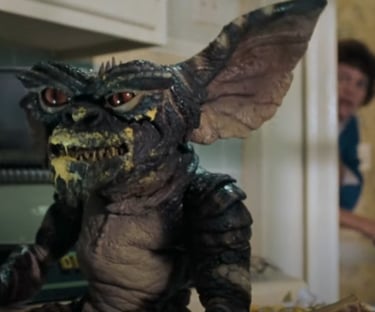

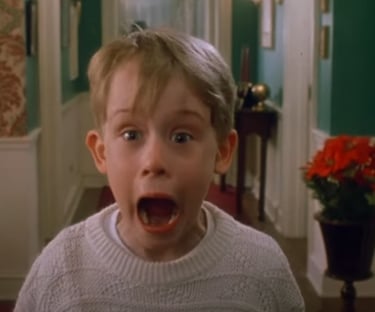

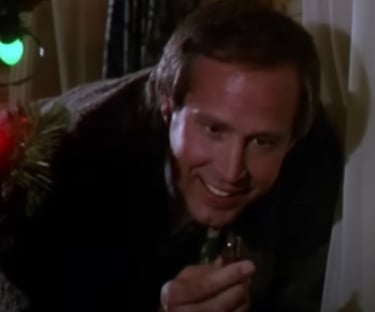

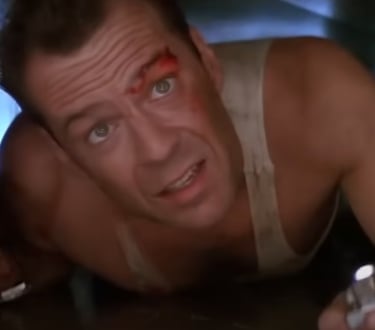

Want another reason why Die Hard isn't a Christmas film? It was released on July 20, 1988 - not the time of year to be fomenting a holiday classic.
The sliding, left-to-right scale of "Christmas Movies," from not-so-much to definitely, irrevocably so...
Contact: lostnostalgiaproductions@gmail.com
Website: www.lostnostalgia.com
Like what we're doing? Please consider throwing us a dollar into our Patreon page's tip jar!


